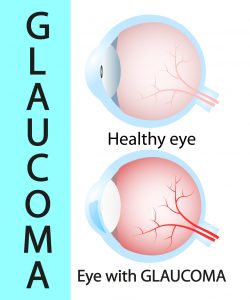 Now if you’ve ever tried to lose weight, which many of us have, then I’m sure you’ve heard the term metabolism. Usually you are told you either have “good” or “bad” metabolism. The only thing you may be sure of is that if you have a “bad” one then it will be harder for you to lose weight. But have you ever wondered what exactly this term means? If so, read below for some background on metabolism and a surprising look into how many of us have metabolic issues and what to do about it.
Now if you’ve ever tried to lose weight, which many of us have, then I’m sure you’ve heard the term metabolism. Usually you are told you either have “good” or “bad” metabolism. The only thing you may be sure of is that if you have a “bad” one then it will be harder for you to lose weight. But have you ever wondered what exactly this term means? If so, read below for some background on metabolism and a surprising look into how many of us have metabolic issues and what to do about it.
What is metabolism?
Metabolism is simply the way your body breaks down foods and uses them for energy. As you grow older, your metabolic rate naturally slows down. Not only that, but natural aging also leads to reduced levels of lean muscle mass. In turn, this will cause a further drop in your metabolic rate.
Metabolic health and inflammation
Besides aging, research is starting to see a possible connection between inflammation and metabolic health. Evidence shows that regulators of the immune system and metabolic interactions include genetics and gut health. Inflammation and metabolic signals may also be closely related. Therefore, further research is warranted to see if an anti-inflammatory approach may be effective in treatment of insulin resistance and other metabolic-related health issues.
What is good metabolic health?
Having a “good” metabolic health means that you have healthy levels of the following five measures without the help of medication.
- Fasting blood glucose: should be at or below 100 mg/dL
- Triglycerides: should be at or below 150 mg/dL
- High density lipoprotein (HDL) cholesterol, or “good” cholesterol: should be at or above 40 mg/dL for men or 50 mg/dL and above for women
- Blood pressure: should be at or under 120 mm Hg systolic pressure over 80 mm Hg diastolic pressure
- Waist circumference: should be less than 35 inches for women and less than 40 inches for men
Any of these measures above the healthy ranges would indicate a less than optimal metabolic health. This in turn could put your at risk for conditions such as type 2 diabetes and heart disease.
The metabolic state of the union
A recent report looks at the latest results of the U.S. National Health and Nutrition Examination Survey. The report looked at data from between 2009 and 2016 of about 8700 adults. This study is used often to look at data trends that represent the average U.S. population.
Current data results reveal that only about 12-percent of the U.S. population has “good” metabolic health. Factors linked with “good” metabolic health include being physically active, younger, and a non-smoker, among other things. Obesity was a leading factor of “poor” metabolic health, with less than 1-percent of those who are obese being considered of “good” metabolic health.
How can I improve my metabolic health?
By looking at what increases risk of metabolic health issues, then you can see what lifestyle changes can help. Here is a list of some healthy lifestyle behavior changes you can make to help improve your metabolic health.
- Exercise often: Stay active as much as possible with both cardio and strength training. This will help you to maintain muscle mass and heart health.
- Eat a healthy, balanced diet: Try to consume a heart healthy diet full of antioxidant and fiber-rich fruits and vegetables as well as lean proteins and plenty of water. Be sure to portion out food into appropriate servings throughout the day to prevent eating too many calories daily. Also, limit processed food intake such as packaged snacks, meals, and sugary drinks and snacks. This will also help to lower your total calorie and sugar intake that can impact metabolic health.
- Manage your weight: Diet and exercise, along with sleeping at least seven hours a night and managing stress can help manage your weight. Since obesity is a risk factor for poor metabolic health, managing weight can improve your metabolic health.
- Quit smoking or don’t start: Since being a non-smoker is a marker for “good” metabolic health, then quitting smoking if yo smoke would help improve your metabolic health.
- Take supplements when necessary: If you have any nutrient deficiencies, then this could impact your energy or ability to be at your best. Therefore, in some cases, a supplement such as Glucarex by Vita Sciences may be helpful. Glucarex contains natural ingredients like chromium, alpha lipoic acid, and cinnamon to help naturally support weight loss as well as healthy metabolism and blood glucose levels.
- Visit your healthcare provider often: If you visit your doctor at least once a year to check your lab numbers, then you can better track your progress. This can help yo to catch any unhealthy trends in lab values early before they cause any major health issues.
References:
- NIH News in Health (July 2015) “Minding Your Metabolism.”
- Medline Plus (April 23, 2018) “Can you boost your metabolism?” https://medlineplus.gov/ency/patientinstructions/000893.htm
- HealthDay (December 4, 2018) “Few Americans Have Optimal ‘Metabolic Health.'”
- Zmora, N., Bashiardes, S., Levy, M., and Elinav, E. (March 2017) “The Role of the Immune System in Metabolic Health and Disease.” Cell Metabolism, 25(3): 506-521.
- Johns Hopkins Medicine (accessed December 12, 2018) “Metabolic Syndrome.”
 Exercise is an important part of any healthy lifestyle. Along with healthy eating, managing stress, and sleeping enough, exercise is vital for heart health. However, starting an exercise program can be hard.
Exercise is an important part of any healthy lifestyle. Along with healthy eating, managing stress, and sleeping enough, exercise is vital for heart health. However, starting an exercise program can be hard.
 It may seem like common sense that living a healthier lifestyle can lower your disease risk. but what exactly is a healthier lifestyle? With so much information on health and wellness in the media, it can be hard to know what healthy really is. From low carb to keto to fasting, each diet plan claims to be the best and healthiest. However, the healthiest eating regimen is going to be the one that makes your unique body feel its best and that you can stick with for the long term. Not to mention, that being healthy is about more than just diet. Staying active, managing stress, and sleeping well enough are just some behaviors that affect health. Recent research shows that leading a healthier lifestyle can reduce your stroke risk and in turn improve your quality of life.
It may seem like common sense that living a healthier lifestyle can lower your disease risk. but what exactly is a healthier lifestyle? With so much information on health and wellness in the media, it can be hard to know what healthy really is. From low carb to keto to fasting, each diet plan claims to be the best and healthiest. However, the healthiest eating regimen is going to be the one that makes your unique body feel its best and that you can stick with for the long term. Not to mention, that being healthy is about more than just diet. Staying active, managing stress, and sleeping well enough are just some behaviors that affect health. Recent research shows that leading a healthier lifestyle can reduce your stroke risk and in turn improve your quality of life. Sleep is a valuable commodity. And it is a whole lot more important than many of us may think. How many times have you told yourself that you can survive on very little sleep. Or maybe you have said that you have more important things to do besides sleep. Sleep is not only important for providing you energy to get through the day. It can also impact your health in a major way if you don’t get enough. Recent research shows that getting more sleep at night could help you lose weight and improve health.
Sleep is a valuable commodity. And it is a whole lot more important than many of us may think. How many times have you told yourself that you can survive on very little sleep. Or maybe you have said that you have more important things to do besides sleep. Sleep is not only important for providing you energy to get through the day. It can also impact your health in a major way if you don’t get enough. Recent research shows that getting more sleep at night could help you lose weight and improve health. An essential part of a heart healthy diet is plenty of plant-based unsaturated fats. Not only do plant-based foods provide heart-healthy fiber, but they are also rich in antioxidants. These antioxidants can help reduce inflammation in the body, and in turn reduce chronic disease risk. One such group of antioxidants are the omega-3 fatty acids found in such foods as avocado, plant-based oils and fatty fish. Recent research shows that these healthy fats may be able to help with mental health. A recent study shows that by increasing the amount of healthy fats in your diet, you could help reduce symptoms of anxiety.
An essential part of a heart healthy diet is plenty of plant-based unsaturated fats. Not only do plant-based foods provide heart-healthy fiber, but they are also rich in antioxidants. These antioxidants can help reduce inflammation in the body, and in turn reduce chronic disease risk. One such group of antioxidants are the omega-3 fatty acids found in such foods as avocado, plant-based oils and fatty fish. Recent research shows that these healthy fats may be able to help with mental health. A recent study shows that by increasing the amount of healthy fats in your diet, you could help reduce symptoms of anxiety. The Greek-style diet has long been touted as one that is full of heart healthy benefits. These benefits are thought to stem from the vast array of healthy fats from plant-based sources and limiting of saturated fats from red meats as well as the rich source of fruits and vegetables in this Mediterranean regimen. However, the health benefits may extend much further than initially realized. A recent study shows that the Mediterranean diet may help to lengthen life of older adults.
The Greek-style diet has long been touted as one that is full of heart healthy benefits. These benefits are thought to stem from the vast array of healthy fats from plant-based sources and limiting of saturated fats from red meats as well as the rich source of fruits and vegetables in this Mediterranean regimen. However, the health benefits may extend much further than initially realized. A recent study shows that the Mediterranean diet may help to lengthen life of older adults. Could it be? Could the delicious sweetness of chocolate actually be good for you? The answer is yes, but in moderation. Chock full of antioxidants, this delicious treat may be able to help you combat heart disease. A recent study has shown that moderate consumption of chocolate can reduce risk of heart disease.
Could it be? Could the delicious sweetness of chocolate actually be good for you? The answer is yes, but in moderation. Chock full of antioxidants, this delicious treat may be able to help you combat heart disease. A recent study has shown that moderate consumption of chocolate can reduce risk of heart disease. What is glaucoma?
What is glaucoma? Night shifts, or working from evening to morning, can be rough on your body and mind. Your meal patterns can become confused. Sleeping patterns can become thrown off course. And in turn, weight gain and sleeping issues can develop over time. A recent study has found that night shifts can cause digestive problems over time by throwing off the body’s internal clock.
Night shifts, or working from evening to morning, can be rough on your body and mind. Your meal patterns can become confused. Sleeping patterns can become thrown off course. And in turn, weight gain and sleeping issues can develop over time. A recent study has found that night shifts can cause digestive problems over time by throwing off the body’s internal clock.